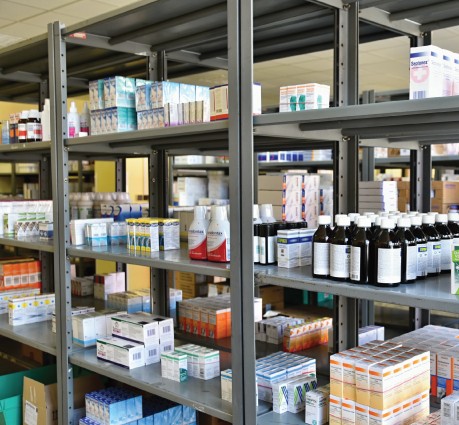The Bachelor of Pharmacy (B.Pharma) is an undergraduate degree programme that focuses on the study of drugs and medication. The programme aims to equip students with knowledge and skills in the field of pharmacy and enable them to become competent pharmacists. During the programme, students learn about pharmaceutical chemistry, pharmacology, pharmacognosy, pharmaceutical analysis, pharmaceutical engineering, and clinical pharmacy. They also gain knowledge about the legal and ethical aspects of pharmacy, drug regulation, and the management of pharmacy businesses. The curriculum includes both theoretical and practical components, with students participating in laboratory sessions, case studies, and internships to gain hands-on experience in pharmacy practice. Graduates of the B. Pharma programme can work in various settings, including community pharmacies, hospitals, drug manufacturing companies, research laboratories, and regulatory agencies. They can also pursue higher education and research in pharmacy or related fields.
Duration of programme
Level of Study

The B.Pharma. programme educates and trains students to become qualified pharmacists for safe medication therapy.
The programme aims to provide a strong foundation in the sciences, pharmacy practise, and social responsibility.
The B.Pharma. programme aims to produce skilled pharmacists for safe and effective medication use.
The B.Pharma. programme aims to foster social responsibility and leadership in pharmacy professionals.
PO11. Life-long learning: Recognise the need for and have the preparation and ability to engage in independent and life-long learning in the broadest context of technological change. Self-assess and use feedback effectively from others to identify learning needs and satisfy these needs on an ongoing basis.
PEO1. Elementary study of pharmacy: To produce graduates furnished with profound knowledge of pharmaceutical sciences to accomplish the necessity of an interdisciplinary area of healthcare services.
PEO2. Professional Establishment: Pharmacists should become technically and professionally
competent to establish their career in the pharmacy profession to execute their knowledge for better design of drugs and dosage regimens.
PEO3. Pharmacy Ethics: The pharmacy graduate will be an effective conversationalist with other
professionals to work for social and economic development by providing medicines needed to society and solving healthcare issues with professional ethics.
PEO4. Multidisciplinary skill: Pharmacists will have advanced knowledge to become lifelong learners in all aspects of serving as a healthcare professional in a miscellaneous field of the healthcare system.
12th (Physics, Chemistry, and Biology/Mathematics)
General - 50% S.C./S.T./Others - 45%